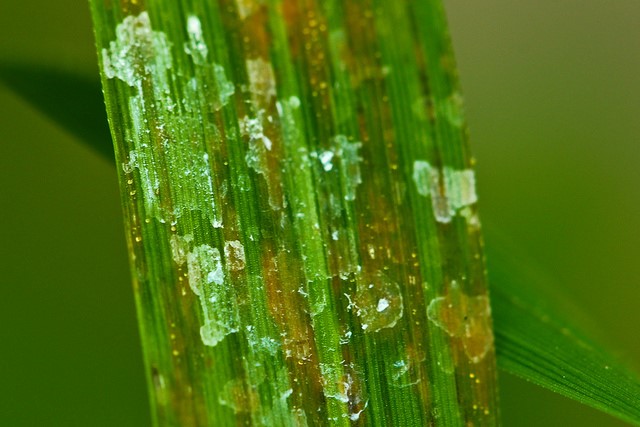Potential Spread of Asian Strains of Bacterial Leaf Blight Poses a Serious Threat to Rice Productivity in the SADC Region

Photo: IRRI Rice Knowledge Bank
Rice (Oryza sativa L.) is one of the most important cereal crops consumed as a staple food by more than half of the world’s population. The 2021 report from the Alliance for a Green Revolution in Africa shows that in Sub-Saharan Africa (SSA), out of 34 million tons of milled rice that is consumed in the region, only 35% is produced locally. The deficit is met through imports, mainly from the USA, India, Thailand and Vietnam, with an import bill of US$ 35 billion annually. This scenario might worsen as locally produced rice is likely to be affected by the potential spread of a recently diagnosed Asian strain of Bacterial Leaf Blight (BLB) caused by Xanthomonas oryzae pathovar oryzae (or Xoo) in the region.
In Africa, BLB was first reported in the 1970s. However, it is only more recently that it has become a serious threat, particularly with the emergence of Asian strains. In the Southern African region, BLB was confirmed in 2019 in some areas of Tanzania and Madagascar. The damage caused by Asian strains can be devastating, with yield losses ranging from 20% to 70% if the crop is attacked in its early stages. Most of the improved and already released rice varieties available in the region are not resistant to Asian strains of BLB.
According to Dr Harinjaka Raveloson, a Plant Pathologist from the Centre National de Recherche Appliquée au Development Rural (FOFIFA) based in Antsirabe, Madagascar, the Asian strain of BLB is more severe than the African strain and most available chemicals show little to no efficiency in stopping the disease from spreading. Hence, the need to focus on releasing improved varieties that are resistant to BLB. “For disease management in Madagascar, we have collected over 200 local populations of BLB from the field and so far, we have successfully inoculated about 10 of them into our improved rice cultivars to assess which resistance aspect can be useful for future breeding programs in the country”, added Dr Reveloson.
Rice Scientists from the entire region, including those from the Regional Centre of Leadership on Rice and Rice-based farming systems (Rice RCoL in short) established in Namacurra, Mozambique under the World Bank funded Agricultural Productivity Programme for Southern Africa (APPSA), have already shared their concern and commitment to stop Asian strains from threatening the livelihoods of smallholder farmers in the region.
Different research initiatives with promising results are currently being undertaken to prevent this disease from spreading across the continent and causing significant damage. For example, a non-profit international research initiative, known as “Healthy Crops”, recently announced the successful breeding of improved rice lines that are resistant to both African and Asian strains of BLB.

























































